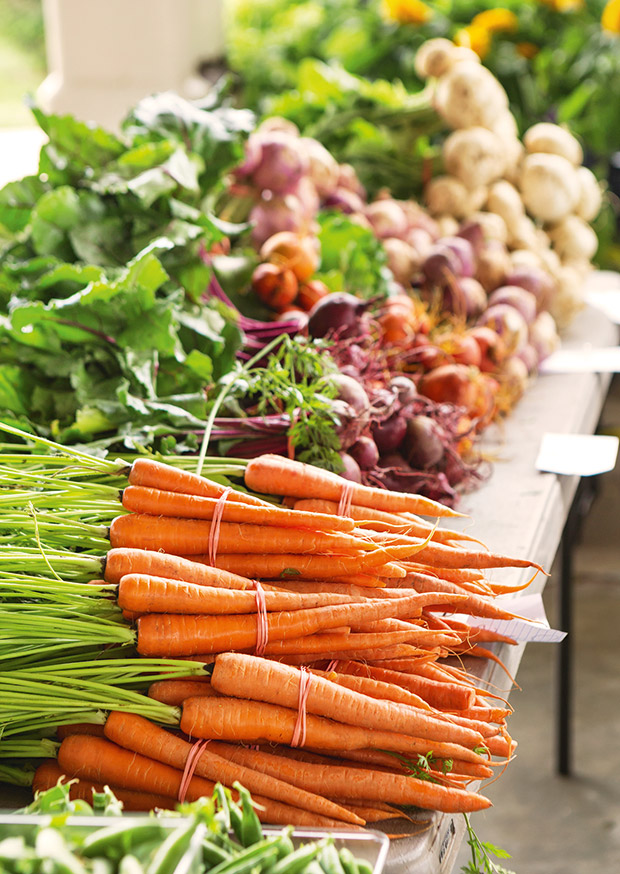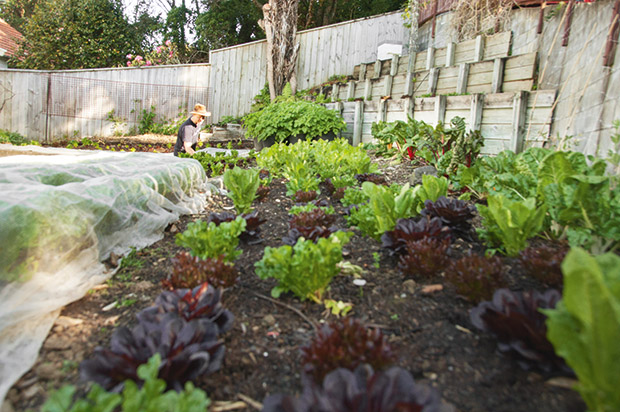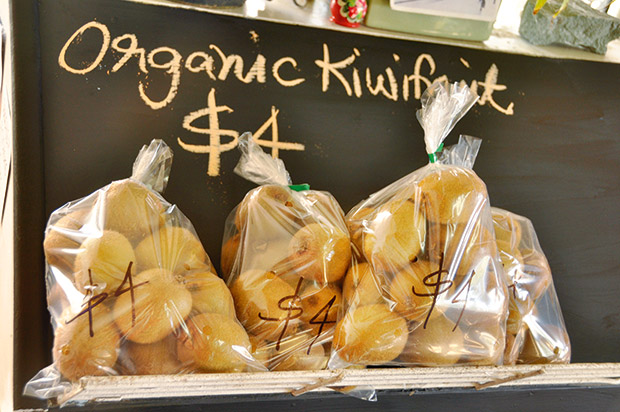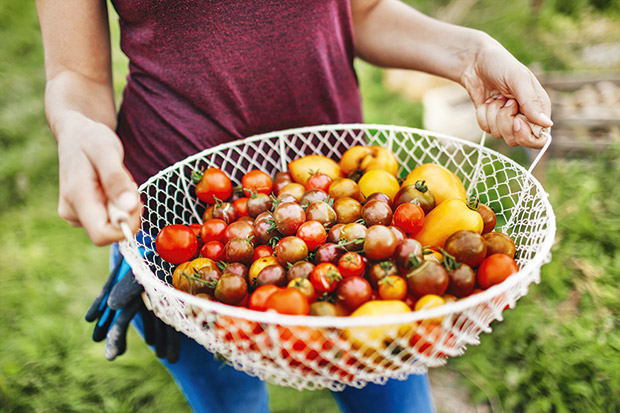How To Make Extra Money On The Side Nz
10+ tips for making a profit off your lifestyle block

Can you make a living from your lifestyle block? Give up your day job and lead the good life? Yes. But.
Words: Sheryn Dean
Many people make a good living from a small block of land. Most people don't. The difference isn't the size of their block or their ability to grow a particular crop.
An enterprise on a lifestyle block faces the same challenges as any other small business, but it has one extra, unpredictable, uncontrollable factor: Mother Nature.
SHERYN'S TIPS FOR SUCCESS
1. Have a 10-year plan
I believe farmers and growers need to farm with a 10-year cycle in mind:
• 3/10 years will be average;
• 1/10 year, the gods will smile upon you, and everything will flourish;
• 1/10 year, disaster will strike;
• 5/10 years will be somewhere either side of average.
The key is to budget for a bad year. Put money, resources, or feed aside in the good years because sooner or later, a bad year will come. Always be prepared to accommodate the fickleness of nature.
2. Be prepared to fail, especially at the start
Animals get sick and die. Crops get eaten by pests, damaged by adverse weather, or fail to flourish.
Small-scale market gardener Carl Freeman says he lost around 25 per cent of his crops when he first started. Another grower I know in a similar situation experienced a much higher failure rate thanks to a plague of possums and some ravenous, determined rats.

Carl Freeman runs an urban 'farm' and aims to sell $1000 of spray-free vegetables each week.
As you gain experience, these types of failures reduce, but regardless of how good your research is and how confident you feel, nature will always throw some curveballs.
3. Do your research in the field
The more research you do, the better prepared you'll be. You can read a wealth of information online, but these resources won't take the vagaries of your specific climate or conditions into consideration.
Get out and talk with people: neighbours, growers, gardeners, orchardists, farmers, pet owners, veterinarians, stock agents, potential customers, friends, family.
Actually, don't talk – listen. Learn about your local climate and growing conditions, find your customer base, learn what they want, why, what they consider important. Join local clubs, social media networks,and organisations. Then, filter out what isn't relevant to you.
4. Trial your idea
Do a small trial. Allow room to expand if it's successful. Every patch of land and its climate is unique. What might work for some guy on YouTube or your neighbour, might not work for you.

Don't over-commit your time and resources until you've gone through a couple of cycles or seasons to see what works and what you may be missing.
5. Make your infrastructure versatile
You can put a lot of time, effort, and money into setting up infrastructure. Leave room so you can adapt or expand as easily as possible. That might be going for 40mm water pipes instead of 20mm, or putting up a waratah-and-wire electric fence down one side of a garden, instead of building a permanent one, so you can easily move it.
6. Diversify
Of all the hundreds of small block businesses I've seen, the ones that have diversified have endured. Alternative income streams often arise as a business owner learns to spot, or creates, opportunities.
A diversified block usually works in with the weather or the seasons. For example, if all the work focuses on an autumn harvest from a nut crop, you have the rest of the year to work on other things.

Diversity also offers a buffer when one crop doesn't perform as expected. Sometimes, a secondary crop can return more than the primary one. I know of an organic feijoa grower who also grows plantain in the understorey of his orchard. One year he made more money selling the plantain to the herbal market than from his fruit.
7. Have a partner earning income off-site
Setting up a new business takes time and investment. Another independent income can cover the routine expenses of life.
8. Have realistic expectations about the money
Whatever you choose to do, make sure you enjoy it because living off the land isn't just about making money; it's about lifestyle. You'll probably wave goodbye to six-digit incomes and long holidays over summer, but also long commutes, power suits, and make-up.
The important thing I discovered running a business off my block is it isn't always about getting more, but about wanting less. It's the challenge of being your own boss, making decisions, reaping the rewards and the consequences, and the endless diversity of working on the land.
THE DIFFERENT WAYS TO MAKE A PROFIT
The production side of a block-based business is usually the fun part, but in my experience, it's about 10 percent of the work. The other 90 percent is turning that produce into profit.
One of the simplest ways is to have one customer, a processor or retailer who takes your entire crop when it's ready, often for a pre-agreed price.
However, I know very few people who are happy with this arrangement long term, for several reasons.
First, it usually takes time to establish the good, reliable, large-scale production levels a big retailer or processor requires. Animals take several seasons to breed and grow; trees take 5-7 years to establish and produce. Flowers and vegetables have the shortest rotation, but it still takes a significant commitment of time to set up a garden with the right soil and the systems required for production.
Secondly, large-scale production works on low margins. You'll have very little control over the price you get. It's all about what a processor or retailer is prepared to pay rather than what you want (or need) to charge.

Another big risk is that things will change. The nut processor gets sold to overseas interests who no longer want to purchase your crop; the juicer decides to discontinue the range; the restaurant closes. Overnight, you can be left with a year's crop and no buyer.
Talk to any grower, and you'll find at some point they've been scandalised by the mark-up put on their produce by retailers. Goods can easily quadruple in price by the time they're sold. If you want to retain some or all of this mark-up, you'll need to sell direct, and this takes business acumen.
Social media and farmers' markets are common ways for small-scale producers to sell directly to customers. It's important to understand the amount of work and dedication this entails, usually a lot more work than the production side.
The benefit of selling direct includes getting immediate feedback from your customers. Most people are usually polite, but you will hear criticism and complaints too. It's essential to listen to and accommodate feedback. If your customers are telling you they want to buy ready-to-eat, sort vegetables into mixes. If they want it cheap, offer a box of unwashed seconds.
These two extremes are entirely different types of customer and usually require different marketing approaches. It's often best to position yourself for one or the other, not both.
Don't be threatened by 'cluster marketing'. Producers of the same crops as you are allies, not enemies. You gain far more from sharing information and equipment, collaborating on marketing, and working in with them than trying to compete. Carl Freeman says the small-scale market gardeners in his region all have their own local customers, and he encourages new people to get started.
Always look for new ways to market your products. Carl sells at the local farmers' market, another grower supplies restaurants, and a third has a thriving farm gate stand.
MORE HERE:
Lifestyle block newbies escape the city blues to start a blueberry orchard in Kerikeri
Love this story? Subscribe now!
 This article first appeared in NZ Lifestyle Block Magazine.
This article first appeared in NZ Lifestyle Block Magazine.
How To Make Extra Money On The Side Nz
Source: https://thisnzlife.co.nz/10-tips-for-making-a-profit-off-your-lifestyle-block/
Posted by: wickershambetwou61.blogspot.com

0 Response to "How To Make Extra Money On The Side Nz"
Post a Comment